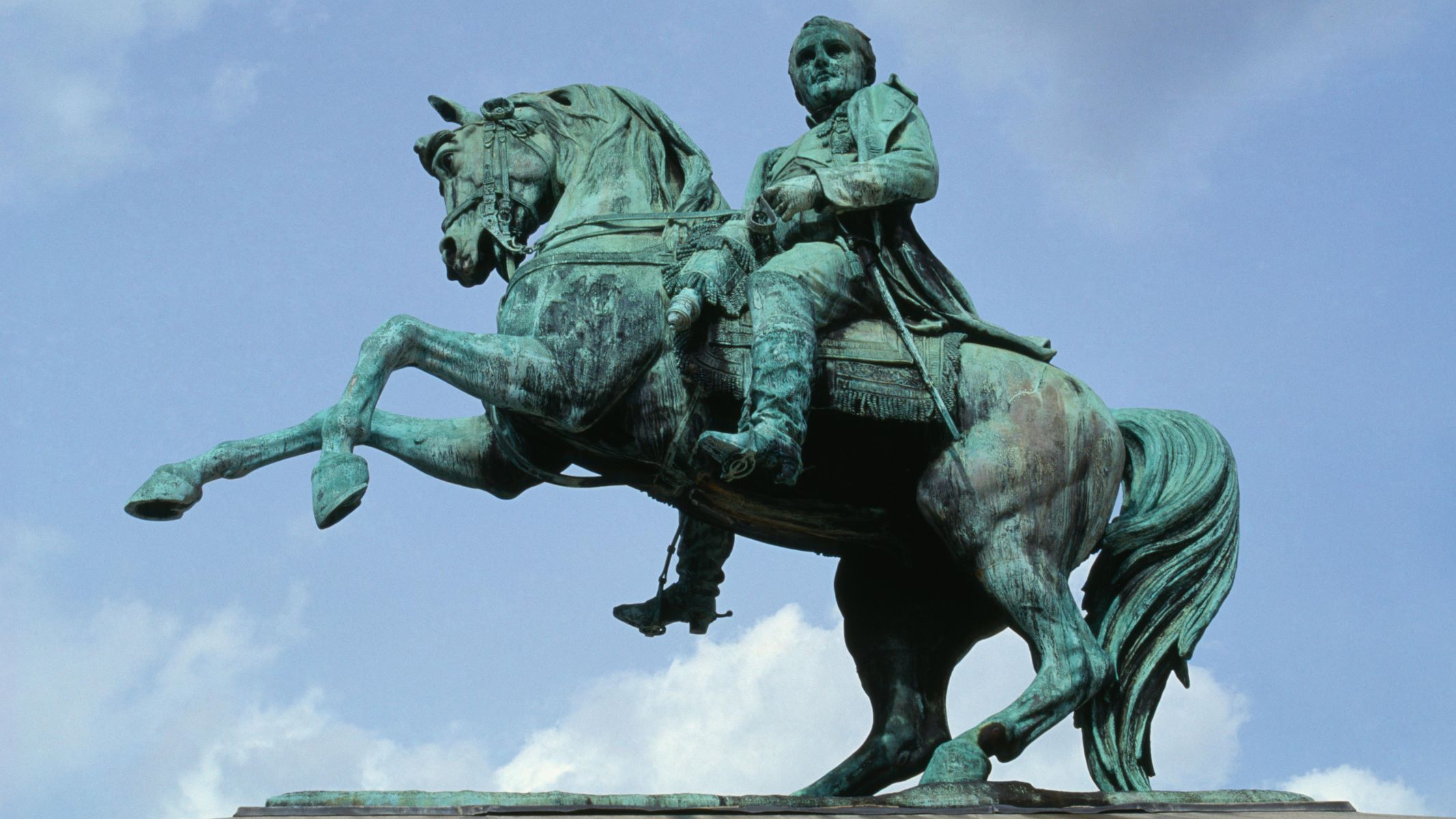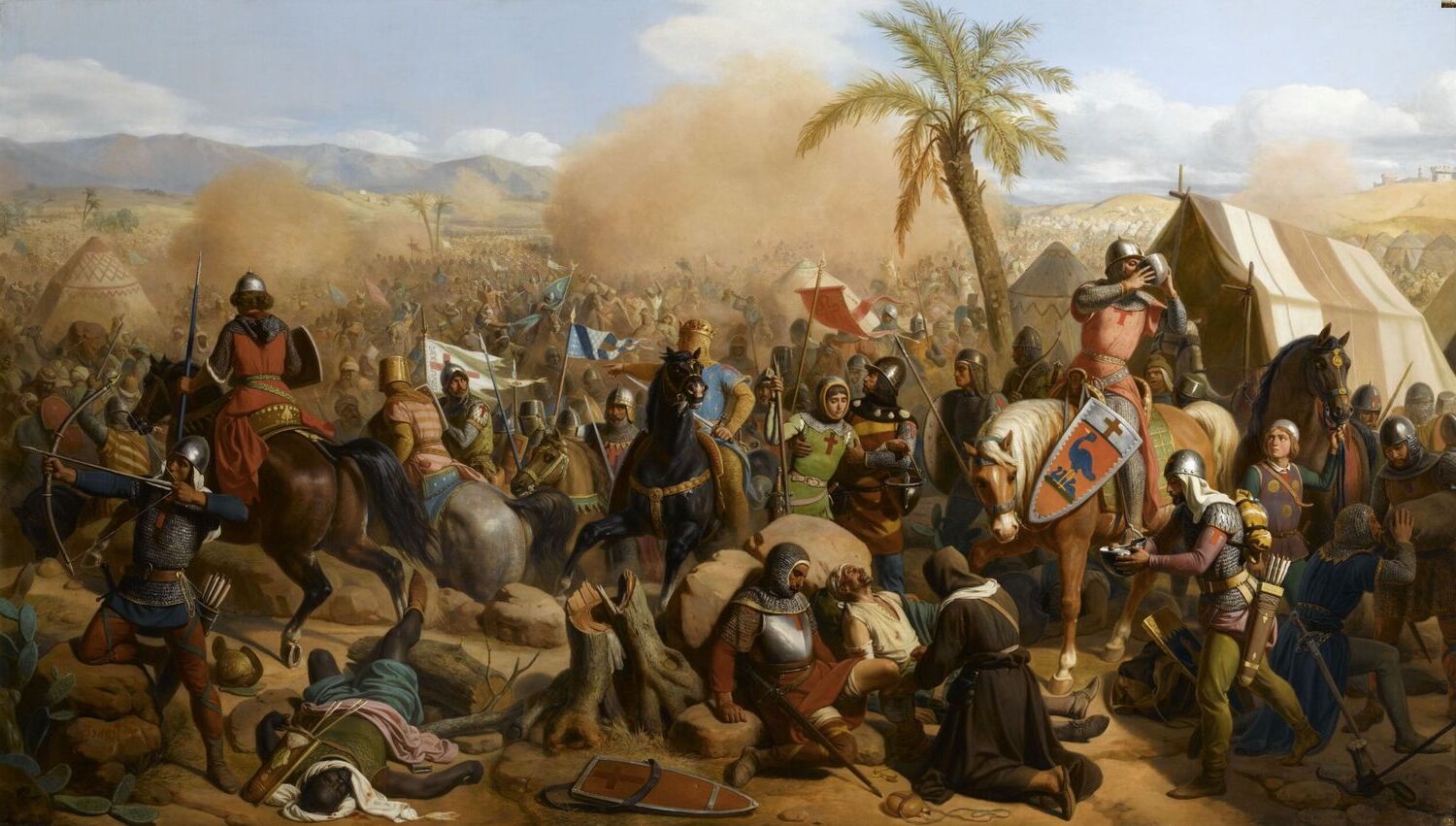
The Napoléon Bonaparte statue is a remarkable landmark that has captivated visitors from all over the world. Standing tall and proud, this iconic statue pays homage to one of history’s most influential figures. Napoléon Bonaparte, also known as Emperor Napoléon I, was a legendary French military and political leader who played a crucial role in shaping the modern world. The statue itself is a magnificent work of art, showcasing the skill and craftsmanship of its sculptor. In this article, we will delve into the intriguing facts surrounding the Napoléon Bonaparte statue, shedding light on its history, significance, and the fascinating stories behind it. So, join us on this journey as we explore ten captivating facts about this iconic landmark!
Key Takeaways:
- The Napoléon Bonaparte statue, sculpted by Antonio Canova, is a towering symbol of power and history, attracting visitors with its regal pose and timeless Carrara marble construction.
- Standing over six meters tall, the Napoléon Bonaparte statue is a captivating tourist attraction, sparking debates and discussions while being meticulously preserved for future generations to admire.
The Napoléon Bonaparte statue is an iconic symbol of power and greatness
The striking Napoléon Bonaparte statue stands tall and proud, capturing the essence of one of history’s most influential figures. Its grandeur and significance make it a must-see landmark for visitors from around the world.
The statue was sculpted by Italian artist Antonio Canova in the 19th century
Antonio Canova, renowned for his neoclassical style, was commissioned to create the masterpiece. His attention to detail and skillful craftsmanship resulted in a breathtaking portrayal of Napoléon Bonaparte.
It took over two years to complete the statue
Canova dedicated countless hours to perfecting every curve and contour of the statue. The painstaking process involved meticulous sculpting, shaping, and delicate carving techniques to bring the vision to life.
The statue is made of Carrara marble
Carved from flawless Carrara marble, the statue radiates a sense of timelessness and elegance. This high-quality material adds to the statue’s durability and ensures its preservation for generations to come.
The statue is over six meters tall
Standing at an impressive height of over six meters, the Napoléon Bonaparte statue dominates its surroundings, commanding attention and awe. Its larger-than-life presence captures the essence of Napoléon’s towering personality.
The statue depicts Napoléon Bonaparte in a regal pose
Napoléon is depicted wearing his military uniform, exuding strength and authority. The attention to detail in capturing his distinctive features, such as the signature hat and confident expression, adds to the statue’s realism.
It was originally intended to be displayed at the Louvre Museum in Paris
The grandeur of the statue was meant to grace the halls of the renowned Louvre Museum, but due to logistical challenges, it found its permanent home in a prominent location in the heart of a bustling city.
The statue has become an iconic tourist attraction
Visitors flock to see the Napoléon Bonaparte statue, mesmerized by its exquisite detail and the profound historical significance it represents. It has become a symbol of national pride and a testament to the enduring legacy of Napoléon.
Efforts have been made to preserve and protect the statue
Given its historical and artistic value, meticulous care is taken to ensure the longevity of the Napoléon Bonaparte statue. Regular maintenance and restoration work are carried out to maintain its original splendor.
The statue has been a subject of controversy
Like many historical monuments, the Napoléon Bonaparte statue has sparked debates and discussions regarding its symbolism and historical significance. It continues to be a thought-provoking piece that ignites conversations about the complexities of history.
The Napoléon Bonaparte statue stands as a testament to the enduring impact of a great leader. Its awe-inspiring presence, intricate craftsmanship, and rich historical context make it a must-visit landmark for history enthusiasts and art lovers alike.
Conclusion
In conclusion, the Napoléon Bonaparte statue is not only a remarkable landmark but also holds many intriguing facts that captivate both history enthusiasts and art lovers. From its immense size and symbolic gestures to its controversial history and intricate details, this statue continues to attract visitors from all over the world.Whether you are interested in the history of Napoléon Bonaparte or simply appreciate impressive sculptures, the Napoléon Bonaparte statue is a must-visit attraction. Its grandeur and significance make it an iconic landmark that embodies the legacy of a powerful historical figure. So, next time you find yourself near this iconic statue, take a moment to ponder its intriguing facts and admire its extraordinary craftsmanship.
FAQs
1. How tall is the Napoléon Bonaparte statue?
The Napoléon Bonaparte statue stands at an impressive height of [insert height] feet!
2. Who sculpted the Napoléon Bonaparte statue?
The Napoléon Bonaparte statue was sculpted by [insert sculptor’s name], a renowned artist known for their exceptional craftsmanship.
3. What materials were used to create the statue?
The statue is made primarily of [insert materials], which were chosen for their durability and ability to withstand various weather conditions.
4. When was the statue erected?
The Napoléon Bonaparte statue was erected in [insert year], commemorating the life and achievements of Napoléon Bonaparte.
5. Are there any symbolic gestures portrayed in the statue?
Yes, the statue depicts Napoléon Bonaparte with [insert symbolic gestures], which represent [explain the symbolic meaning of the gestures].
6. What is the significance of the statue?
The Napoléon Bonaparte statue holds immense historical significance, as it pays homage to Napoléon Bonaparte and commemorates his legacy as a powerful military and political leader.
7. Has the statue faced any controversies?
Yes, the Napoléon Bonaparte statue has faced controversies over the years, with some criticizing its glorification of a figure associated with both triumphs and atrocities.
8. Can visitors take photographs with the statue?
Yes, visitors are typically allowed to take photographs with the Napoléon Bonaparte statue as long as they respect the surrounding area and do not cause any damage.
9. Are there any guided tours available for the statue?
Yes, many tour companies offer guided tours specifically focused on the Napoléon Bonaparte statue, providing visitors with insightful information about its history and significance.
10. Is the Napoléon Bonaparte statue accessible for people with disabilities?
Efforts have been made to make the Napoléon Bonaparte statue accessible, including ramps and elevators, to ensure that people with disabilities can also admire this iconic landmark.
Discover more captivating facts about iconic figures and places. Uncover the secrets behind the Bronze statue of Richard the Lionheart, a legendary king known for his bravery. Delve into the life of David Petraeus, a renowned military leader whose career shaped modern warfare. Explore Lucknow's rich history and historical monuments that have stood the test of time. Each story offers a unique glimpse into the past, waiting to be revealed.
Was this page helpful?
Our commitment to delivering trustworthy and engaging content is at the heart of what we do. Each fact on our site is contributed by real users like you, bringing a wealth of diverse insights and information. To ensure the highest standards of accuracy and reliability, our dedicated editors meticulously review each submission. This process guarantees that the facts we share are not only fascinating but also credible. Trust in our commitment to quality and authenticity as you explore and learn with us.


